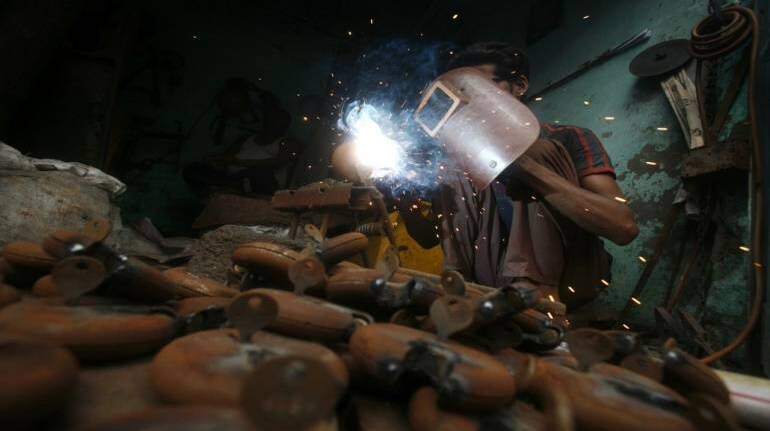



A steep increase in raw material and fuel prices this month is threatening the survival of micro, small and medium enterprises (MSMEs) across the country.
Just as they were looking to recover from the shock of COVID-19, small businesses say the soaring prices of fuel and steel are forcing them to sell their wares at cost or at razor thin margins.
The industries say that October is proving to be a difficult month, as steel prices have increased manifold and are hampering their production capabilities.
According to reports public and private steel plants have increased steel prices by around Rs 6,000 per tonne this month. Over the last year, the price of steel has increased to around Rs 25,000 per tonne.
Speaking to Moneycontrol, Ramamurthy - member, All India Council of Association of MSMEs (AICA), which represents 170 MSME associations across the country, said: “Steel prices have increased massively over a year. The market is not accepting the effect of the price hike therefore a lot of MSMEs are now selling at a breakeven point.”
“Fuel prices have also gone up, which is making logistics expensive. If this continues, how will MSMEs survive,” he added.
Surge in working capital requirement
According to Ramamurthy, due to the steep hike in prices, the working capital requirement of MSMEs has doubled, affecting their export competitiveness.
Badish Jindal, President, Federation of Punjab Small Industries Associations, which represents 4,000 MSMEs, said: “The increase in the cost of steel is affecting MSMEs, which are already struggling because of the pandemic. It has squeezed the working capital of units.”
MSMEs sell at a very low margin, and this has slimmed further after the price hike. The small businesses are in a fix because the market is not willing to accommodate the price change as orders and contracts are pre-booked. “If we try to cancel the order now, it would mean that we would lose the customer forever,” Jindal added.
Jindal also noted that the surge in fuel prices is another setback for MSMEs as it has pushed logistics costs up significantly.
Fuel price impact
Petrol and diesel prices were hiked across the country for the seventh consecutive day on October 11, taking fuel rates to record highs.
In the national capital, the petrol price was Rs 104.44 per litre on Monday (October 11), up 30 paise over the previous day, while diesel was retailing at Rs 93.17 per litre, an increase of 35 paise.
The petrol price in Mumbai is the highest across metro cities, at a staggering Rs 110.41 per litre on Monday, while diesel stood at Rs 101.03 per litre.
Narinder Bhamra, President, Fasteners Manufacturers Association of India, noted that steel prices have gone up to Rs 25,000 per tonne over the past year.
“Steel accounts for nearly 70 percent of the cost of production. But now our working capital is almost finished, which is forcing many MSMEs to take loans. We cannot keep taking loans like this,” Bhamra said.
MSME units are producing and selling products at very thin margins as they cannot afford to cancel orders, he added.
Commenting on the rise in petrol and diesel costs for the sector, Bhamra said, "Fuel costs not only add to the logistic costs, several industries require it for manufacturing, too. This is like a double whammy for the MSMEs, which are still recovering from COVID-19.”
Government intervention sought
“The reports are saying that steel prices have risen because there is an energy crisis in China. The government should issue a statement or a white paper on the matter. It should also guide MSMEs on how to come out of this crisis,” said Ramamurthy.
The government should intervene as the escalating costs are hurting MSMEs. “My suggestion is that steel prices should be published on a quarterly basis and that level should be maintained for three months so that MSMEs do not suffer losses from such volatile changes, he said.
Both Bhamra and Jindal noted that they have sent representations to the government seeking its intervention in this matter.
“Steel plants are using China’s energy problem as an excuse to raise prices as per their liking. The government should justify if this really is the reason and intervene,” said Bhamra.
Discover the latest Business News, Sensex, and Nifty updates. Obtain Personal Finance insights, tax queries, and expert opinions on Moneycontrol or download the Moneycontrol App to stay updated!